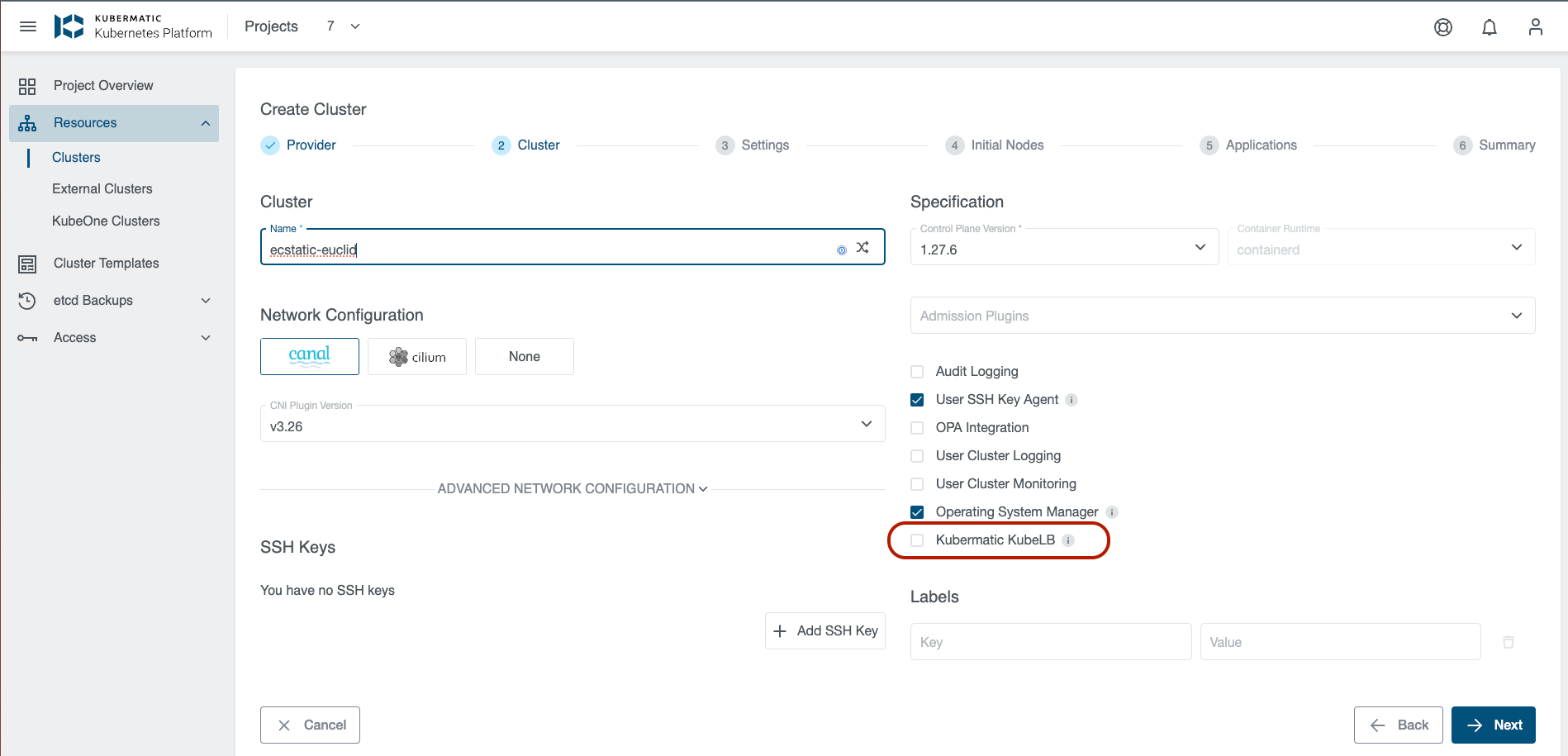KubeLB is a Kubernetes native tool, responsible for centrally managing load balancers for Kubernetes clusters across multi-cloud and on-premise environments.
Usage
Starting with KKP v2.24, KubeLB is integrated into the Kubermatic Kubernetes Platform (KKP). This means that you can use KubeLB to provision load balancers for your KKP clusters. KKP will take care of configurations and deployments for you in the user cluster. Admins mainly need to create the KubeLB management cluster and configure KKP to use it. For KubeLB management cluster and it’s configuration please refer to the KubeLB documentation
For KubeLB v1.1 and above, you must be using KKP v2.26 or higher for proper integration. KubeLB v1.1 introduces Tenant API to manage tenants which is not supported below KKP v2.26.
KubeLB can be configured in the following way:
- Create a secret with the key
kubeconfigthat contains the kubeconfig for the KubeLB management cluster. - Configure
Seedas follows:
apiVersion: kubermatic.k8c.io/v1
kind: Seed
metadata:
name: kubermatic
namespace: kubermatic
spec:
# these two fields are only informational
country: FR
location: Paris
# KubeLB configuration
kubelb:
kubeconfig:
name: kubelb-management-cluster
namespace: kubermatic
# List of datacenters where this seed cluster is allowed to create clusters.
datacenters:
vsphere-de:
country: DE
location: Hamburg
spec:
vsphere:
endpoint: "https://vsphere.hamburg.example.com"
kubelb:
# To enable KubeLB for this datacenter. This will not install KubeLB for the user clusters, has to be configured at the cluster level.
enabled: true
# Enforced is used to enforce kubeLB installation for all the user clusters belonging to this datacenter. Setting enforced to false will not uninstall kubeLB from # the user clusters and it needs to be disabled manually.
enforced: false
# NodeAddressType is used to configure the address type from node, used for load balancing. Optional: Defaults to ExternalIP
nodeAddressType: InternalIP
# Kubeconfig is reference to the Kubeconfig for the kubeLB management cluster. Kubeconfig specified at the datacenter level will have precedence over the
# kubeconfig specified at the seed level.
kubeconfig: nil
- Enable KubeLB for the user cluster:
apiVersion: kubermatic.k8c.io/v1
kind: Cluster
metadata:
name: crh4xbxz5f
spec:
...
kubelb:
enabled: true
...
This can be enabled using the KKP dashboard as well.
